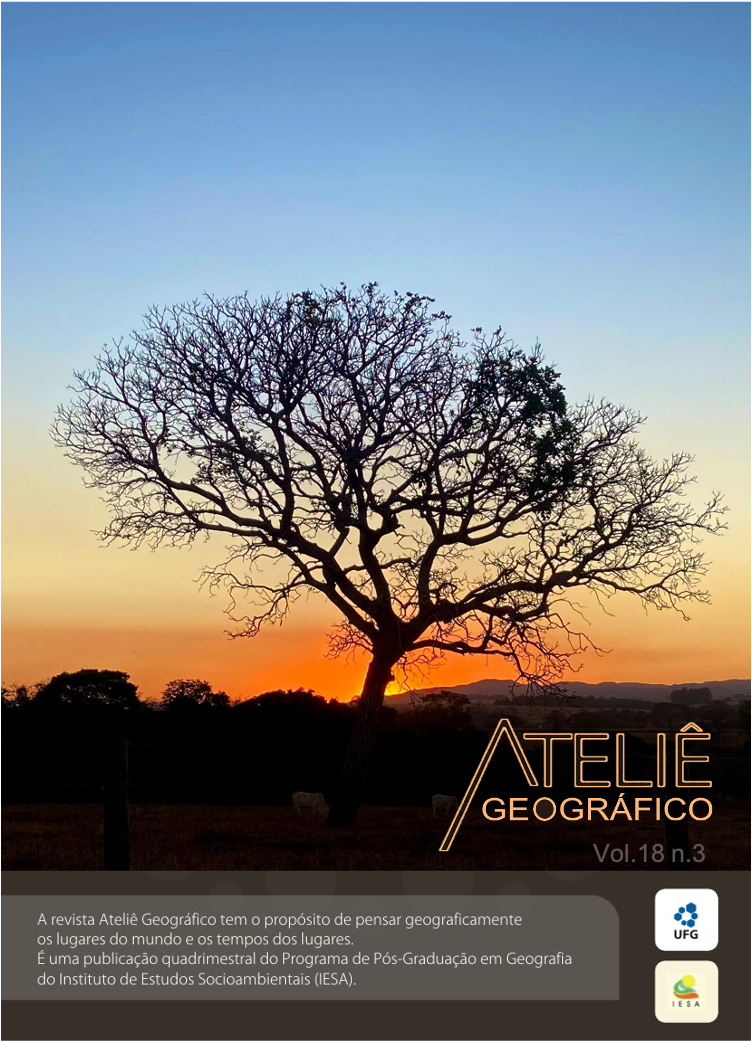Geossistema, território e paisagem (GTP) e a Geografia Física brasileira: panorama analítico e contribuições para o debate socioambiental
DOI :
https://doi.org/10.5216/ag.v18i3.78645Résumé
O sistema tripolar GTP é uma proposição teórico-metodológica que busca articular os conceitos de geossistema, território e paisagem para subsidiar pesquisas socioambientais. Contudo, o modo como os geógrafos brasileiros têm utilizado o GTP, com seus sucessos e desafios, ainda não é plenamente compreendido. Nesse viés, o presente estudo almeja apreender a relevância dos pressupostos do sistema tripolar para o debate socioambiental ligado ao ordenamento do território. Pretende-se ainda identificar o panorama de uso do GTP em dissertações e teses publicadas em 18 Programas de Pós-Graduação em Geografia no Brasil, entre 2007 e 2015. Para isso, atentou-se a um conjunto de variáveis bibliométricas que permitem reconhecer as trajetórias e tendências da temática. Observa-se que o sistema GTP tem permitido que a Geografia Física desenvolva estudos socioambientais que transitam entre perspectivas naturalistas, socioeconômicos e socioculturais voltadas ao ordenamento do território; todavia, as dissertações e teses apresentam dificuldades para ressignificar as proposições originais pensadas pelo francês Georges Bertrand, dificultando a articulação entre os conceitos do sistema e os produtos baseados na Geografia/realidade nacional.
Téléchargements
Téléchargements
Publié-e
Versions
- 2025-02-17 (3)
- 2025-02-17 (2)
- 2024-12-29 (1)
Comment citer
Numéro
Rubrique
Licence
Autores que publicam nesta revista concordam com os seguintes termos:- Autores mantém os direitos autorais e concedem à revista o direito de primeira publicação, com o trabalho simultaneamente licenciado sob a Licença Creative Commons Attribution que permite o compartilhamento do trabalho com reconhecimento da autoria e publicação inicial nesta revista.
- Os autores não serão remunerados pela publicação de trabalhos na Revista Ateliê Geográfico. Além disso, os conteúdos publicados são de inteira e exclusiva responsabilidade de seus autores, ainda que reservado aos editores o direito de proceder a ajustes textuais e de adequação às normas da publicação.
- Autores têm permissão e são estimulados a divulgar seu trabalho online (ex.: em repositórios institucionais ou na sua página pessoal), já que isso pode gerar alterações produtivas, bem como aumentar o impacto e a citação do trabalho publicado (Veja O Efeito do Acesso Livre).


